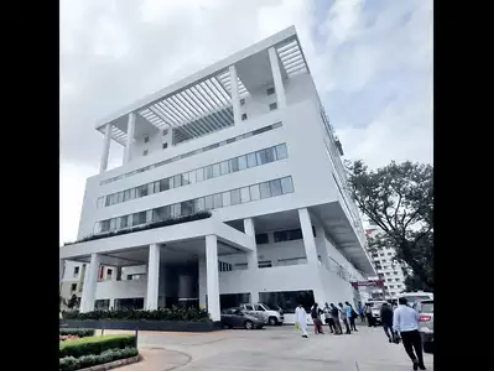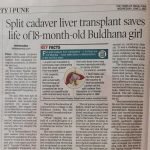A city hospital performed the state’s second successful small intestine transplant. The 34-year-old patient, who lost his small intestine to gangrene, had lost 40 kg pursuant to removal of the organ six months ago and desperately needed the transplant to return to normal life.
While the procedure happened at Jupiter Hospital in September, conducted by a team of doctors led by Dr Gaurav Chaubal (who is the hospital’s chief multi-organ transplant surgeon), it could be declared a success only after the patient regained his ability to digest food and return to normality. Interestingly, Jupiter Hospital, where the surgery took place, also performed the state’s first successful transplant of the small intestine in March this year. The patient, operated on in September, received an entire small intestine measuring 400 cm from a young cadaveric donor.
Transplant of small intestine is considered for people suffering from intestinal failure, which could happen due to massive resection of the organ or its inadequate absorption of nutrients due to different medical reasons. It becomes imperative for patients with complications from receiving intravenous nutrition, also called parenteral nutrition (PN), or in situations where PN is not possible. The small intestine is where 90 per cent of the digestion and food absorption occur, doctors point out.
Prior to the transplant, the patient’s health had drastically deteriorated, as he became dependent on intravenous nutrition supply to his body, with becoming incapable of absorbing any in the normal course from his diet. “He suffered from malnutrition, weight loss, diarrhoea and required frequent hospitalisation. He was on PN delivered through a catheter inserted into his neck vein. He had to wait six months before he could get a suitable donor,” said a doctor on the team that performed the transplant.
The chief surgeon, Dr. Chaubal, added, “Finding right donors for bowel transplant is a major challenge. They need to be screened and selected with utmost care, as success of the transplant depends heavily on donor selection. Further, the
donors have to be young individuals who are very stable after brain death. The incidence of long-term survival pursuant to this transplant is 75-80 per cent. The patients need three-four weeks to recover after surgery.”
The procedure took place at Jupiter Hospital in September, where the patient received an entire small intestine measuring 400 cm from a cadaveric donor
Courtesy-Pune Mirror





